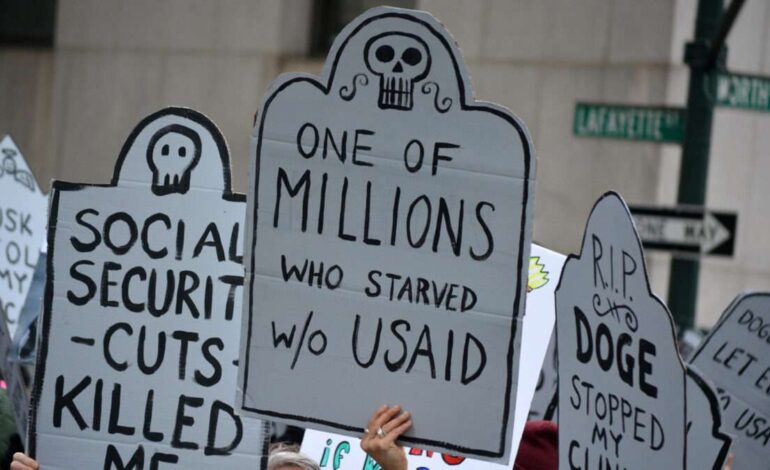USAID’s Claim of 90 Million Lives Saved Sparks Controversy

URGENT UPDATE: A new study claiming that the U.S. Agency for International Development (USAID) has saved 90 million lives from 2001 to 2021 is igniting a fierce debate among experts and media outlets. The report, published in the prestigious medical journal The Lancet, has been met with skepticism regarding its methodology and implications.
Health policy researcher James Macinko from UCLA, a coauthor of the study, stated in a recent NPR interview that the average American taxpayer contributes about 18 cents per day to USAID, a “small amount” that purportedly saved millions of lives globally. However, the study also warns that if proposed cuts by the Trump administration continue through 2030, an estimated 14 million people could die who otherwise would have survived.
Critics are questioning the credibility of these findings, arguing that they lack a solid foundation. The study’s claim that USAID was responsible for the entire decline in global mortality is viewed as implausible. In 2001, the global death toll was 52.43 million, with a steady decline over the years. The total reduction in mortality is estimated at 79 million lives saved, raising doubts about USAID’s role in this achievement.
Most of the mortality decline, around 47 million, occurred in China—a country that received merely 73 cents per capita annually from USAID. In contrast, the least developed countries, which received higher per capita spending, experienced an increase of 8 million deaths during the same period. This stark contrast further complicates the narrative that USAID funding alone drove improvements in global health.
The study’s methodology has come under fire for its reliance on “regression analysis,” which only shows correlation and does not prove causation. Critics point out that the authors failed to account for other vital factors influencing mortality rates, such as advancements in medicine, agriculture, and economic growth. Furthermore, the study employed “dummy variables” to exclude certain years where USAID spending seemed correlated with mortality increases, raising questions about data manipulation.
In an alarming twist, the Lancet report has been utilized to create a partisan narrative, suggesting that those supporting budget cuts to USAID value financial savings over human lives. This dichotomy, framed by the authors, may obscure the complexities of foreign aid and its impacts.
The controversy surrounding this study highlights the ongoing debate over the effectiveness of foreign aid and its measurement. As experts continue to dissect the claims, the implications of these findings could influence future funding decisions and public perception of global health initiatives.
As this story develops, stakeholders in the health and policy sectors are urged to scrutinize the data and engage in a constructive dialogue about the true impact of USAID and similar programs. The conversation is far from over, and it underscores the urgent need for transparency and accuracy in reporting such critical matters.






